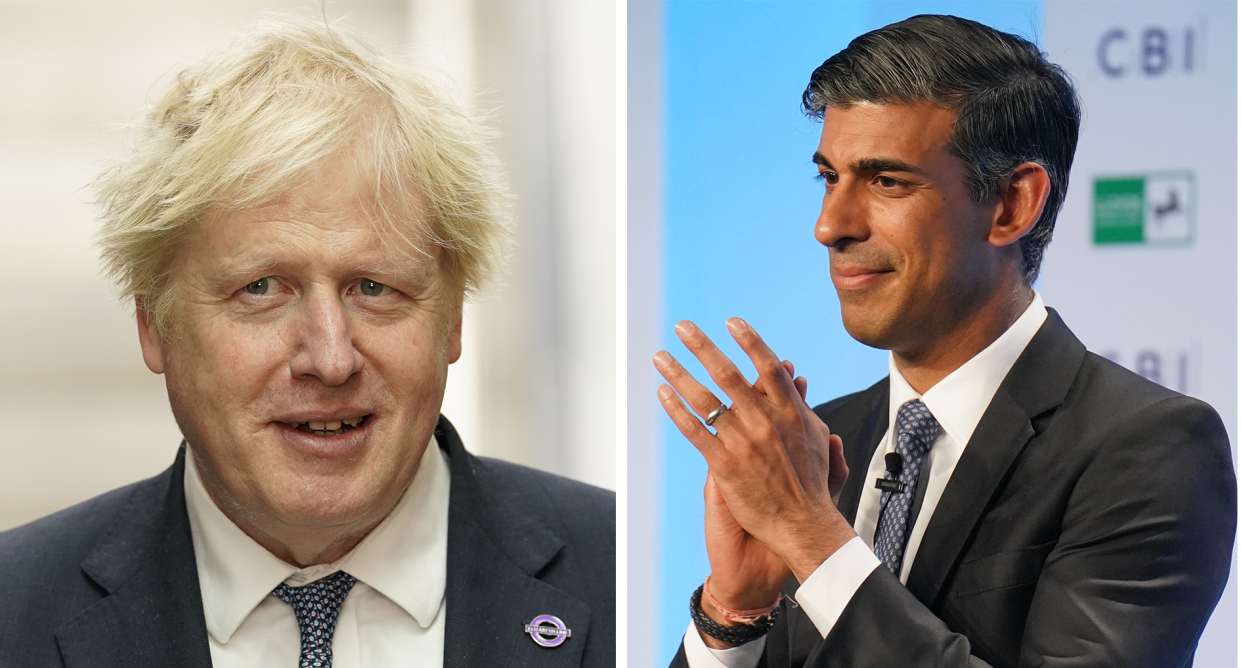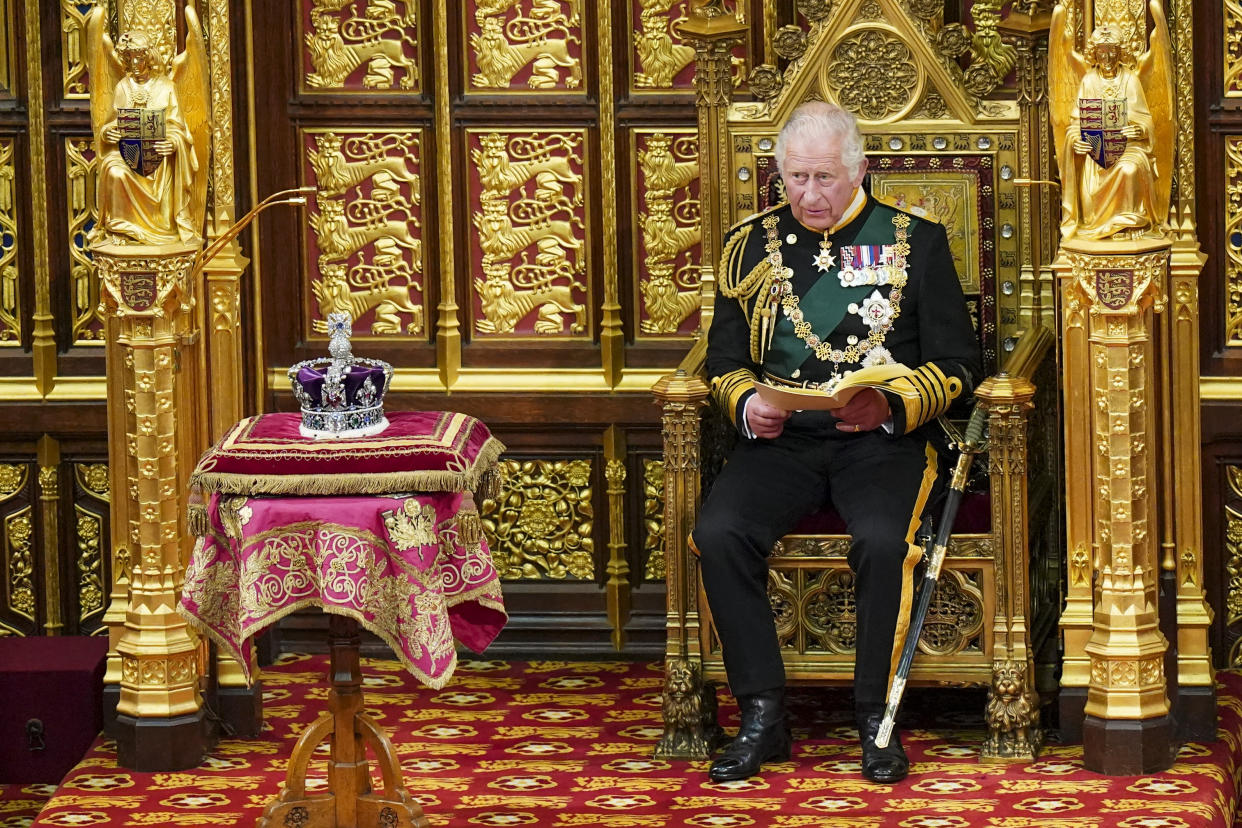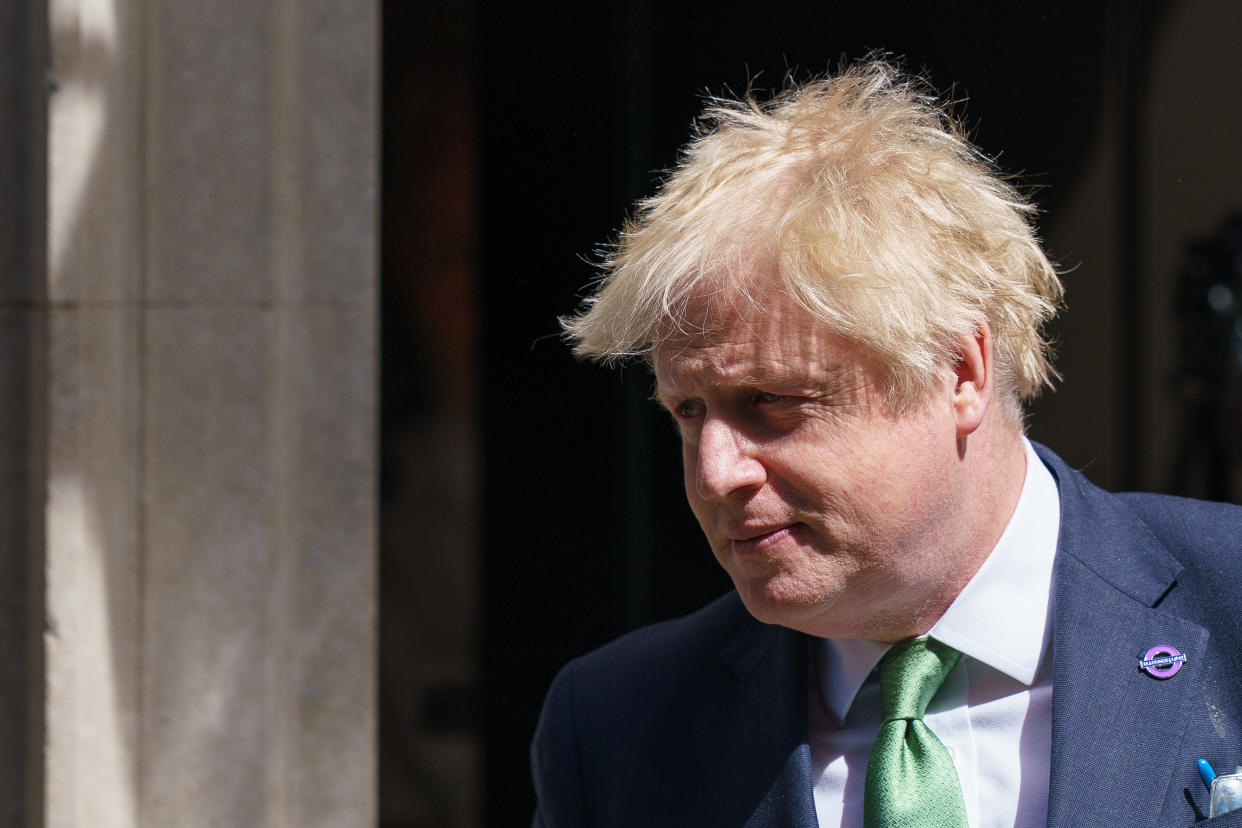Tory MPs reject pleas for emergency budget amid cost-of-living crisis

Tory MPs have voted down calls for an emergency budget despite growing demands that more to be done to tackle the cost-of-living crisis.
Prince Charles laid out the government's legislative programme in the Queen's Speech last week and, on Wednesday, MPs voted to approve the speech.
However, a Labour amendment calling for an emergency budget to tackle the crisis was defeated by 312 votes to 229, with Conservative MPs overwhelmingly opposing it.

Watch: Rishi Sinak says government's response to cost of living will "evolve"
Labour says an emergency budget is needed now and should include a windfall tax on energy companies to help keep bills down.
Labour deputy leader Angela Rayner said after the vote: "I just voted for an Emergency Budget to tackle the Conservative cost of living crisis. The Conservatives voted it down. Britain deserves better."
However, the prime minister did not emerge unscathed for the debate, which saw growing calls for him to change course and respond to cost-of-living increases as inflation hit a 40-year high.
Conservative former cabinet minister Chris Grayling said: “I am pretty supportive of much of what this Government has done, how it has gone about dealing with a range of issues that have arisen.
“But I would like to make one very simple point to the minister and his colleagues. You cannot achieve growth by over-taxing our economy.
“The decisions that have been taken on tax have been taken. But the direction of travel needs to change and it needs to change soon.”
Conservative Sir Bernard Jenkin, MP for Harwich and North Essex, said a £13.5 billion ‘summer package’ of support is required, telling MPs: “We must all recognise the cost of living crisis – yes crisis.”
The government was criticised for not doing enough to tackle cost of living in the the Queen's Speech, prompting reports that an emergency budget could be announced to bring in further measures to ease the effects of rising costs.
But ministers refuted those claims, saying reports of a fresh budget were "overinflated".
The prime minister and chancellor Rishi Sunak are under intense pressure to act after Consumer Prices Index inflation soared to 9% in the year to April, up from 7% in March, according to the Office for National Statistics (ONS).
Read more: Labour To Force Vote On Emergency Budget As Inflation Hits 'Worrying' 40-Year High

Sunak has warned that he can not “protect people completely” from the cost-of-living squeeze, though the PM promised to “look at all the measures that we need” to get people “through to the other side” of the inflation spike.
The Bank of England has a mandate to keep inflation below 2%, but Governor Andrew Bailey has admitted to being helpless in the face of global pressures including a spike in energy costs and the war in Ukraine.

What has the government done so far to try and combat the cost of living?
During the 2021 Spending Review, a raft of measures were introduced, including changes to the taper rate and work allowance of Universal Credit.
This was brought in after the government dropped a £20 a week Universal Credit increase brought in during the pandemic, but still left 75% worse-off than before, Action for Children said.
Energy costs are on the rise after the price cap was raised by 54%, leading the government to introduce;
- A £150 Council Tax rebate from April 2022 for 80% of households in the council tax bands A-D;
- A £200 discount on energy bills for all domestic electricity customers from October 2022, to be repaid in £40 installments over 5 years;
- £144 million in discretionary funding to councils to support low-income households not covered by the council tax rebate.
Sunak introduced additional measures during the Spring Statement in March, including:
- An increase to the earnings threshold for National Insurance contributions from £9,880 to £12,570 in July 2022;
- A temporary 12-month cut of 5p per litre on fuel duty;
- An additional £500 million for the Household Support Fund in 2022/23 to be distributed by councils.


